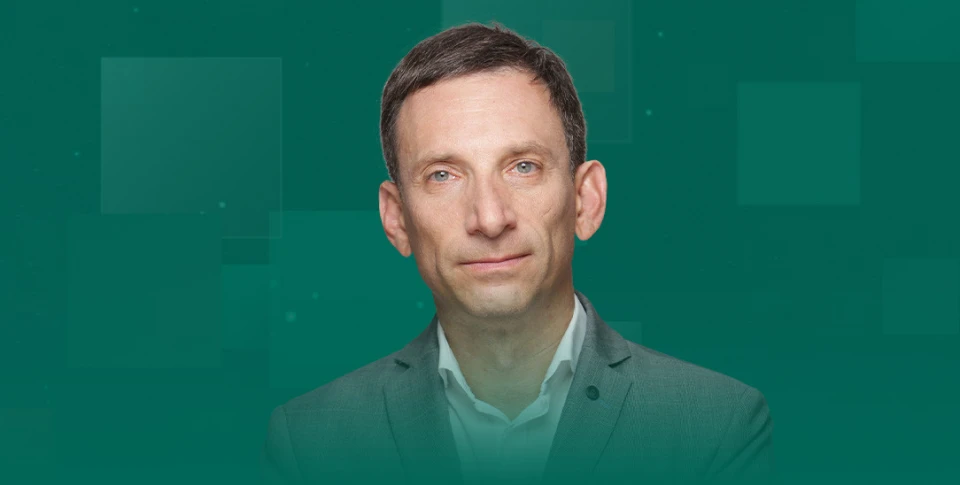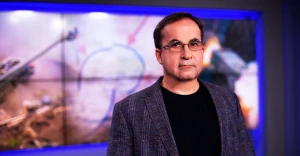
Why it’s critical for Russia to wear out faster
Let’s stick to realism here — because the biggest weapon the democratic world has is its ability to push back against dictatorships, not just for today, but for decades ahead. Ukraine is just one chapter in this much larger fight
Even if, hypothetically, Ukraine were to disappear from the world map, the clash between democracy and dictatorships wouldn’t end there. In fact, it would only gain more momentum. I believe the democratic world understands this clearly.
That’s why it’s vital for Ukraine to win this war, to remain on the global map, and for democracies to prove that no one can rewrite international law or deny countries the right to make their own political and civilizational choices. These rights are non-negotiable for nations that value them.
At the same time, we have to recognize that this war isn’t being fought on a single front.
There’s the military aggression — Russia’s war on Ukraine. And not just Russia’s war on Ukraine, because, again, Ukraine is just one piece of a much bigger picture. There’s war in the Middle East, there’s the ongoing conflict in Syria, and if the Russian-Ukrainian war drags on (and let’s be honest, a political resolution isn’t on the horizon), we could see new, equally devastating wars erupt in different parts of the world. While a full-scale World War III with nuclear strikes isn’t yet on the table, nations are waging localized conflicts to wear down their enemies wherever possible. And, as I’ve said, Ukraine is a part of this global showdown.
But there’s also an economic front. The West finds itself trapped by its economic ties to countries like China. How do you sanction Russia, which is effectively China’s proxy, while knowing that your own prosperity depends on your relationship with Beijing? It’s the same with Iran, another proxy of China, fueling terrorism in the Middle East. And here’s the dilemma: Western countries want to win against dictatorships, but they also want to avoid a decade of economic hardship and instability that cutting ties with China would bring. It’s a choice — wealth or victory. You can’t make it happen overnight as well, and that needs to be acknowledged.
There’s the battle on the electoral front. For dictatorships, winning elections is much simpler than it is for democracies.
Democracies prioritize fairness and procedures. Dictatorships focus on the result, and that’s why they’re winning — and will keep winning — on this front.
Only recently have we seen Russia's influence in the Republic of Moldova. The near-loss of the European referendum — something that should have been a clear victory — shows the situation. Moldova finally got a chance for European integration, something unthinkable without Russia's war on Ukraine. Yet, half the population within Moldova itself opposes integration with Europe. What does that tell us?
In Georgia, the victory of the Georgian Dream party is clearly a win for Russia on the electoral front. China's success in the Maldives, effectively pushing out the Indian fleet, has also weakened U.S. chances for a military partnership with India in the Pacific and reduced the effectiveness of such partnerships. China's victory in Sri Lanka's presidential elections is another clear win, further limiting U.S. influence in a region far more critical to America than 150 Ukraines altogether.
And yet, the U.S. continues to lose, steadily and without understanding. They fail to grasp what is happening in electoral processes or the role China plays as a key economic partner willing to invest in such outcomes.
Europe is no different. We keep telling Europeans that we are protecting them, that we stand as NATO’s shield. I always refute this claim — we are not protecting anyone. Riga is closer to Moscow than Kyiv is. Latvia, Estonia, and Poland share borders with Russia. If Moscow wanted to strike, it would strike there, regardless.
Our real protection of these countries lies elsewhere. By holding the line, we are reducing the influence of the Russian Federation over Europe itself.
If Russia wins, it will open doors for political victories wherever forces are willing to align with Moscow’s narrative. Recent gains by far-right and far-left parties in Europe show that Russia is playing this game effectively. While we hold conferences in Vienna, figures like Prime Minister Orban and former Chancellor Schröder attend major gatherings in Switzerland, alongside other leaders who have long-standing ties with Vladimir Putin. These connections matter. For instance, Austria’s far-right speaker of parliament meets with Orban, and the party that just won Austria’s parliamentary elections signs a joint cooperation agreement with Hungary’s prime minister. If this isn’t a clear victory for Russia, what is? And this is just one of many. More will follow. The more ground we lose on the battlefield, the more victories Russia will claim politically.
I’m not even talking about the post-Soviet space. In 2022, when Russia failed to “solve the problem in three days,” its influence across the post-Soviet region visibly declined. Now, it’s growing — right before our eyes. This is evident in Central Asia. It’s evident in the Caucasus.
And this is what happens when Russia shows its neighbors that refusing to integrate with it leads to failure — ruin, and a demographic, economic, and social crisis. Ukraine has become the perfect example of what happens when a country resists Russian demands. If this continues for the next 3, 5, or 7 years, rest assured that Russia will dominate the post-Soviet region. Once Ukraine’s statehood is destroyed, it will set its sights on becoming the hegemon of Europe.
And economic strength isn't even necessary for that. The Russian Empire was never known for its economic power. But when a "Russian soldier" shows up in Paris, you acknowledge that it’s a powerful state and that it sets the rules on the European continent.
This is exactly why it must be stopped. That’s the message we need to deliver to our partners. And yes, they are our partners — not our allies.
If we wanted allies, we would’ve pursued NATO membership before the country closest to us attacked, not after.
You don’t look for allies after the "brother" you trusted turns out to be your enemy. That’s not how it works. No country in history has ever done that. Trying to do it like that only leads to the grave. Our task now is to work with our partners, leveraging their understanding of Russia's violations of international law and its inhuman actions on our soil, to safeguard our statehood and national strength for the next decade.
And we need to keep one thing very clear: even if we somehow manage to end this war — and every additional year of war will only weaken us — you can’t assume Russia will simply collapse alongside us. Russia must be exhausted faster, and that’s a challenge for our allies. They need to understand that continuous support for us is non-negotiable. A small, worn-out nation of 30 million cannot stand against a 130-million-strong country backed by China without unwavering Western support.
Even with such support, even if the war ends, even if troops on both sides halt at the contact line, and even if decisions are made that pave the way for us to join the Euro-Atlantic community, remember: the battle doesn’t stop there. The moment the guns go silent, we’ll be fighting a new war — on the electoral front. And don’t think victory is guaranteed. After the war, many people will adopt the mindset of “let there be no more war” or “let’s avoid another crisis like this.” That’s when we risk losing again and facing another geopolitical shift, which today seems impossible but could become reality the moment peace arrives.
We need to prepare for this now. Winning the war could very well mean losing the peace. Look at Tbilisi or Chisinau. In the '90s, after war tore through Moldova, it seemed inconceivable that it would ever fall back into Russia’s sphere of influence. Yet, here we are. We must learn from this and shape a future that avoids the same fate. If we don’t take care of it now, we may face the consequences sooner than we think.
Source
About the author. Vitaliy Portnykov, journalist, National Shevchenko Prize laureate
The editorial staff does not always share the opinions expressed by the blog authors.
- News











































